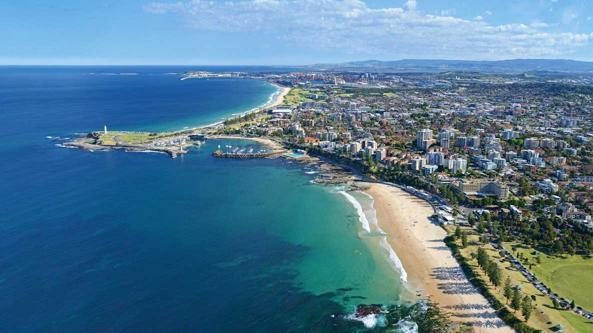Q: What is distinctive about the Bachelor of Arts in Western Civilisation?
A: We have designed a curriculum that takes students on a chronologically ordered journey through great periods and epochs of intellectual and artistic change in the West and challenges them to think for themselves.
At each stage of their journey, students will engage directly – in depth and detail – with exemplary classic works and masterpieces of Western art and literature. By learning directly from these works, students will cultivate open, critical minds. Our ambition is to put students into a live conversation with the great minds of the past so they can understand what those minds have to say to us today.
Philosophical reflection and analysis are also at the heart of our program. By joining the great conversation, our students will grapple with concepts they may not otherwise question, such as ethics, aesthetics, philosophy of religion and political philosophy.
By becoming acquainted with foundational epistemological and metaphysical debates such as those between rationalists and empiricists, idealists and realists, students will confront questions about the nature of the self, truth and reason.
Q: What is the origin of Western Civilisation degrees?
A: Western civilisation degrees have a special provenance and proud history. The first of their kind, a degree called Contemporary Civilisation in the West, was created for Columbia College of Columbia University in 1919.
It was born out of an effort to restore public faith in Western Civilisation's powerful artistic, literary and philosophical heritage after German forces had tragically misused the "defence of western civilisation" as justification for atrocities committed during the Great War.
This liberal arts degree was designed to teach ‘student officers about the civilisation they had been tasked with defending’ during WWI. The course evolved into a peace studies degree and later became part of Columbia University’s core curriculum. It continues to be one of Columbia University’s most successful and valued programs of study to this day.
Q: What kind of student will study the degree?
A: Students who are intellectually curious and interested in asking questions about received views and assumptions.
Our liberal arts program takes inspiration from the American Philosopher, Robert Hutchins, and his idea of the great conversation. Hutchins wrote in 1952, “Nothing is to remain undiscussed. Everybody is to speak [their] mind. No proposition is to be left unexamined.”
Students will be confronted with questions about the very idea of Western civilisation and its influences on contemporary thought and practice. A major aim of the degree is for students to ask fundamental questions about what they are studying and to give reasons for the views they adopt.
Our ambition is to instil a spirit of open questioning in all of our students and to equip our students to reason about and evaluate possible answers to those difficult questions.
As with our other arts and humanities offerings, they will learn how to think, not what to think.
Q: What is the application process to study the Bachelor of Arts in Western Civilisation?
A: Refer to the 'How to apply' and 'UOW Ramsay Scholarship' information on this page.
Q: Can students defer an offer?
A: Yes, students can defer an offer to study the degree however scholarship offers cannot be deferred.
Q: Can this degree be studied part-time?
A: Yes, the degree can be completed part-time however only full-time students are eligible to receive a scholarship.
Q: Can students undertake the Bachelor of Arts in Western Civilisation as part of a double degree program?
A: Yes, students are able to study the Bachelor of Arts in Western Civilisation as a double degree combination with the Bachelor of Laws, Bachelor of International Studies, Bachelor of Creative Arts, or Bachelor of Politics, Philosophy and Economics.
Q: Will mature aged applicants be considered for a place in the degree?
A: Yes, mature aged applicants are invited to apply.
Q: Who will teach the degree?
A: From 2019 to 2021, UOW will hire nine academics to teach the degree. A global search will be conducted for the best and most suitable academic talent.
These colleagues will have the normal UOW academic contracts, including normal loading for research, and will accrue research leave entitlement at the normal rate.
Q: Where will graduates expect to find employment?
A: Graduates will be prepared for the future with invaluable transferrable skills. There is a demonstrated need for erudite graduates who can think and reason critically and creatively and who can communicate clearly. They will be well placed to be leaders in the knowledge economy, ready for careers in sectors including civil society, business and government, and ready to tackle the challenges facing Australia and the world.
Career opportunities
 Career opportunities
Career opportunities




